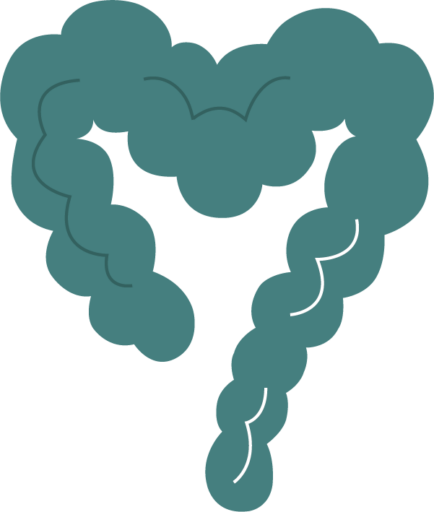
Bile acid malabsorption
It may seem like a somewhat tricky term, but bile acid malabsorption is a condition that can easily be confused with IBS or occur simultaneously with IBS, as it can cause diarrhea, among other symptoms. If you have persistent diarrhea, it is important to undergo a thorough investigation to obtain the correct diagnosis. Here, we will review the causes, symptoms, and available treatments.
About bile acid malabsorption
Bile salts are necessary for the absorption of fats from the intestine. They circulate in a cycle, with about 95% being reabsorbed in the small intestine and transported to the liver for reuse. Only a small portion of bile salts passes into the large intestine, where they have a laxative effect.
Bile acid malabsorption occurs in up to 30% of patients with chronic diarrhea. Symptoms include chronic, non-bloody, watery diarrhea, urgent bowel movements, nighttime diarrhea, and fecal incontinence. Some individuals also experience abdominal pain.
The primary treatment involves medications that bind bile salts, which are effective for alleviating symptoms. Some patients benefit from a low-fat diet, but since individual tolerance to fat varies, it is recommended to consult a dietitian for guidance. Antidiarrheal medications such as Dimor and Imodium are sometimes used as combination therapy and can be phased out as other treatments and dietary changes take effect. The FODMAP diet can also help reduce symptoms, particularly regarding diarrhea. By avoiding foods that tend to speed up the digestive process, symptoms may decrease.
If you suffer from chronic diarrhea or diarrhea-predominant IBS (IBS-D) and haven’t found sufficient relief from the FODMAP diet, it is important to seek help and discuss further evaluation with your doctor. You may need a different or complementary treatment for your gastrointestinal issues.
Sofia Antonsson
Reg. Dietitian, Belly Balance
Take control over your IBS today!
Are you ready to take back your life from IBS? Our app provides the tools and guidance you need to manage IBS effectively.
Try the app for freeRead more about

IBS - What is it?
Bloated , constipated or having a gassy stomach? IBS or Irritable Bowel Syndrome is a functional gastrointestinal disorder, meaning no physical issues can be found in the stomach or intestines; they just don’t function quite as they should.

How the app works
Download the app and become part of our community. We assist you in achieving a calm and happy stomach through treatment and tools available directly in the app.

About FODMAP
By learning which foods upset your stomach, you can make conscious choices and get quick symptom relief. With the low FODMAP diet, you receive structured assistance in understanding which foods your body tolerates better than others. No more guessing and pondering – you get the answer straight away!

